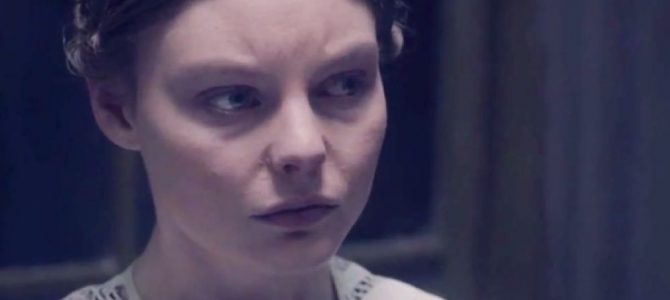
While Queen Victoria and Prince Albert fell in love upstairs, we watched Mr. Francatelli and Miss Skerrett fall in love downstairs. The palace chef, Mr. Francatelli, took an early interest in Miss Skerrett, the queen’s head dresser, and during the first season of PBS’ “Victoria,” we watched as he wooed her.
Francatelli served Skerrett sweets he’d baked, seeking her opinions and making her a royal taste tester. By the season’s penultimate episode, when they fed each other the “Bomb Surprise” — a cousin of the Baked Alaska, which Francatelli created and Skerrett named — viewers could reasonably assume that the flirtation had progressed to true interest on both sides.
But lo, in the final episode, when Mr. Francatelli receives an offer to open his own establishment and tells Miss Skerrett, “I don’t want to do it alone,” she demurs, then declines. It would be one thing if she didn’t like him, but she clearly does. Rather, on the advice of her Eliza, Miss Skerrett’s cousin who’s a single mother struggling to raise her daughter in poverty, Nancy Skerrett decides that she can’t leave her palace position for a man who loves her.
Well, If We Care About Historical Accuracy Now
When “Victoria” aired in Britain last year, The Daily Mail compiled a run-down of various ways “Victoria” was historically inaccurate. For example, they note that “raffish palace chef Mr Francatelli reveals that Queen’s dresser Marianne [called Nancy on the show] Skerrett hid a sordid secret: she had once worked at ‘Ma Fletcher’s Nunnery’, a brothel. The real Miss Skerrett was of impeccable background.”
Interestingly, that list and others almost entirely ignored the Francatelli-Skerrett dynamic. Perhaps I’m the only one who noticed and found it odd, but Eliza’s life advice in the final episode — and Miss Skerrett’s taking it — seemed anachronistic.
Consider the discussion Miss Skerrett has with Eliza during one of her regular visits. It feels out of place. Eliza is wowed by the Francatelli-made baked goods Nancy brings. However, after hearing about Francatelli’s request, Eliza advises that “the queen’s dresser with her own money coming in doesn’t give it up to follow a pastry cook.”
Politely dissenting, Nancy mentions that Francatelli cares for her, and that she could continue to support Eliza and her daughter. Eliza then warns Nancy not to trust a man, lest she wind up a single mother like Eliza (in an era when that still carried serious social stigma). “You have your freedom, Nancy. Don’t give it up for a man.”
Historically speaking, this is only about 20 years after the 1817 death of Jane Austen, the British writer famous for writing about marriage and the importance of making good matches. It’s hard to believe that too much had changed in those two intervening decades. Did women suddenly have their own, independent social standing, and had that work transitioned from being something working-class women did because of financial need to an empowering, identity-affirming choice?
Second-Wave Feminism Happened in the 1960s
It’s as if second-wave feminism had somehow existed 130 years earlier in strikingly traditional Victorian England. In this scene, Miss Skerrett is cast as a bicycle-less fish with an enviable life. Skerrett’s life is indeed pretty good, but if she’s honest with herself, she knows it’s incomplete. For while she may not need a husband (a very twentieth-century idea), Nancy clearly wants to share her life with one particular man.
Still, when Mr. Francatelli later inquires about her decision, Nancy turns him down, saying she already has everything she needs. She cites money and position, noting that one day she “could be promoted to Mrs. Skerrett and have an assistant of my own.” To that, he replies, “You could be Mrs. Francatelli tomorrow.”
Ah! Therein lies the tension between Mr. Francatelli’s honorable intentions, Miss Skerrett’s true wishes, and Miss Skerrett’s need to please the anachronistic-sounding Eliza. Nancy heeds Eliza’s guidance but suffers for it, running off to cry when she learns Francatelli has left the palace without saying goodbye.
Nancy’s storyline is like one big teachable moment. At the end of the day, a modern woman can embrace her career and choose how to live her best life. But if that life is to be a meaningful one, it should leave room for a Mr. Francatelli. Only time will tell if Miss Skerrett chooses differently in season two.









